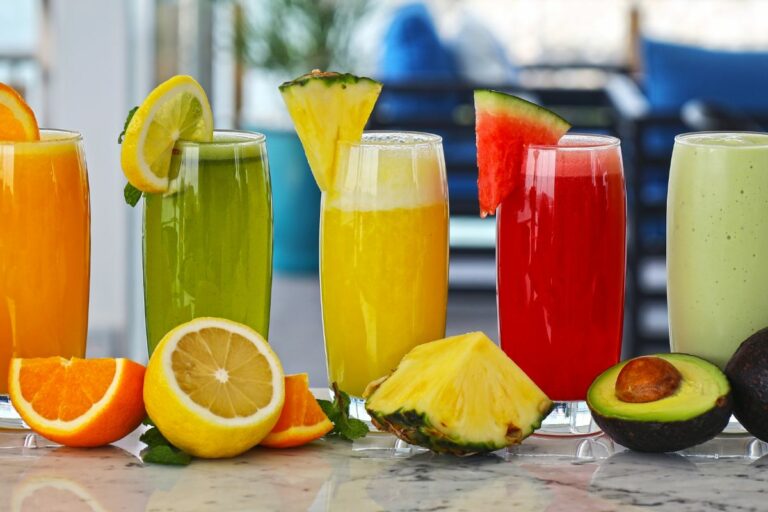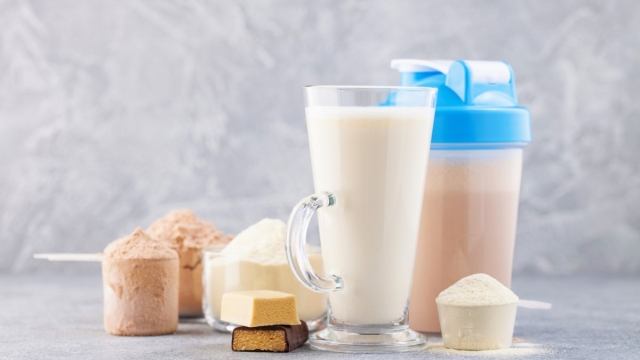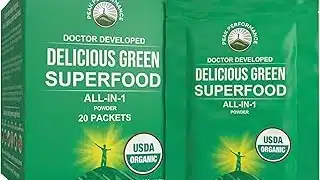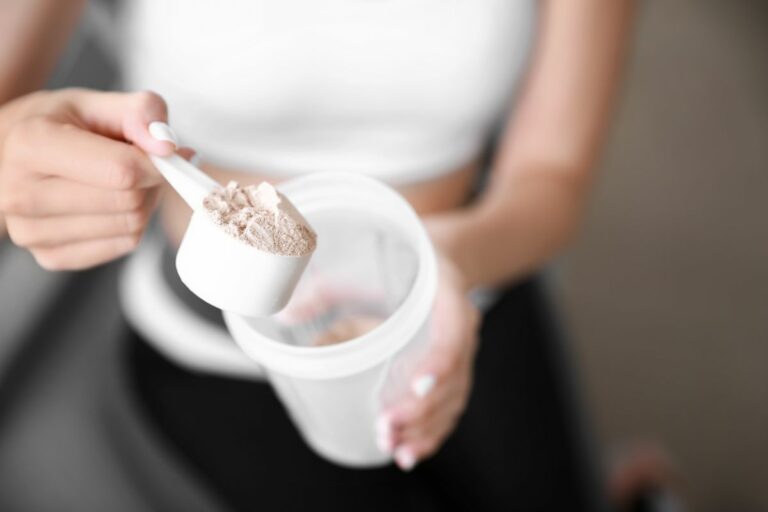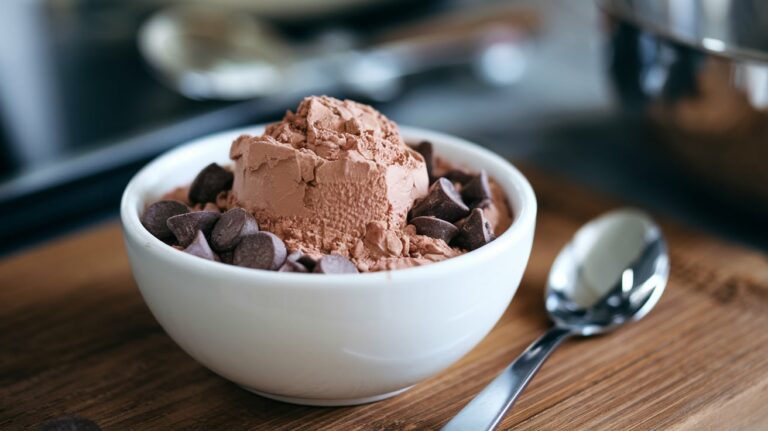Do Protein Drinks Have Sugar?
It’s vital to pay attention to the sugar level of protein drinks as their popularity grows.
Long-term use of sugar may be harmful to one’s health. Sugar can have negative effects; however individual body types and preferences may differ.
It’s essential to understand the common responses to inquiries concerning the amount of sugar in protein drinks.
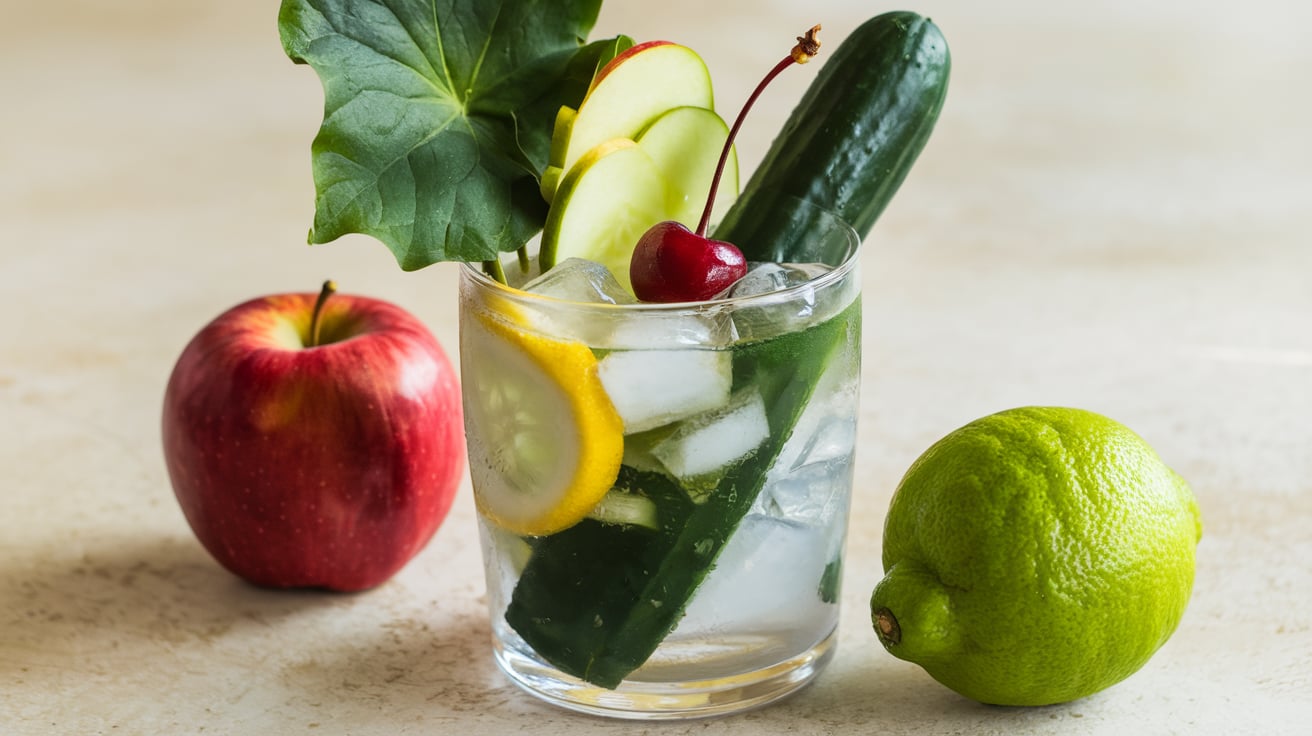
What are The Typical Sugar Contents in Protein Drinks?
The following are some typical sugar contents that are present in protein drinks:
Natural sweeteners: To improve flavor, some protein drinks add natural sweeteners such agave nectar, maple syrup and honey.
Though they are seen to be more “natural” than sugars that have been processed.
Artificial sweeteners: Aspartame (Equal) and sucralose (Splenda) are two examples of artificial sweeteners used in protein drinks as a sugar alternative.
Even though these sweeteners are minimal in calories, they have the ability to give the drink more sweetness.
Fruit juices or concentrates: These ingredients are frequently added to protein drinks to make them sweeter.
These may consist of concentrated grape juice, apple juice etc.
Flavored syrups: To improve flavor, some protein drinks add flavored syrups, such chocolate and coffee. These syrups usually have a high sugar content.
High-fructose corn syrup (HFCS): HFCS, is a typical sweetener that may be found in a lot of protein drinks. Its great sweetness and low cost make it a popular choice.
Maltodextrin: A carbohydrate generated from starches, maltodextrin is not strictly a sugar.
It’s frequently used to sweeten and give protein drinks more volume.
Dextrose: Dextrose is a basic sugar made from maize, frequently added as a sweetener to protein drinks.
Although it gives you energy quickly, it might cause a blood sugar increase.
What are the Benefits of Choosing Low-sugar Protein Drinks?
Choosing protein drinks low in sugar has a number of advantages for your general health. Here are a few main benefits:
Weight Management
- Drinks with a lot of sugar might trigger weight gain since they contain more calories.
- You can control how many calories you consume by selecting protein drinks with reduced sugar.
- Maintaining a taking low sugar drink will help to loss weight.
Blood Sugar Control
- Blood sugar levels may rise and fall as a result of consuming too much sugar.
- You’ll feel drained and irritated after this.
- Protein drinks with low sugar content provide you a more steady energy source and lessen blood sugar swings.
Reduced Risk of Chronic Diseases
- Consuming too much sugar has been associated with a higher chance of developing chronic illnesses.
- For example obesity, heart disease, and type-2 diabetes can happen due to this.
- Selecting proteins drinks that are low in sugar will help you consume less sugar overall and lessen your risk of illness.
Improved Dental Health
- Sugar-filled drinks may worsen cavities and tooth decay, particularly if they are consumed on a regular basis.
- Exposure to sweets can damage your teeth, choosing low-sugar protein drinks can help safeguard.
Better Hydration
- Added sugars included in high-sugar beverages can have a drying effect.
- Added sugars, which can dehydrate the body, are frequently found in high-sugar drinks.
- Drinks with low sugar content that are high in protein can keep you hydrated.
Enhanced Nutrient Absorption
- The body’s capacity to absorb vital nutrients may be hampered by an excessive sugar intake.
- You may promote proper nutrient absorption and make sure your body gets the nutrients.
Support for Muscle Recovery and Growth
- Protein is necessary for the development and repair of muscles, particularly after exercise.
- Protein drinks with reduced sugar content offer a practical means of restocking protein reserves without the need for more sugar.
Tips on Choosing Protein Drinks with Minimal Added Sugar
Here are some things to consider while choosing low-sugar protein drinks:
Read the nutrition label
To find out how much sugar is in each serving, check out the nutrition information panel.
Seek protein drinks with the fewest calories per serving. A serving should ideally include no more than 5 grams of sugar.
Look for sugar-free or unsweetened options
Certain protein drinks are designed to be unsweetened and devoid of added sugar. They added different flavorings and sweeteners to the drinks.
These choices still offer taste and protein, but they can also help reduce the amount of sugar consumed.
Choose natural sweeteners
If the protein drink has a sweetener, seek for options that use natural sweeteners.
These sweeteners give sweetness without raising blood sugar levels and consuming a large amount of calories.
Avoid added sugars
In order to identify added sugars such maltodextrin, high-fructose corn syrup and cane sugar, check the ingredients list.
Stay away from items that contain these components since they raise the drink’s total sugar level.
Opt for protein isolates
The refined form of protein isolates is frequently lower in sugar and carbs than that of protein concentrates.
If you want less sugar in your protein drink, look for brands that include whey, soy or pea protein isolate.
Consider the flavor
There might be more added sugar in certain tastes than others, like vanilla or chocolate.
To cut back on sugar, choose tastes that are simpler and those that are marked as “lightly sweetened”.
Check the serving size
Observe the portion size specified on the nutrition label.
Although the sugar content of certain protein drinks can seem small per serving, if the portion size is little, you might wind up consuming more sugar.
Compare different brands
When it comes to sugar levels, not all protein drinks are made equal.
To determine which brand has the least amount of sugar per serving, compare the nutrition labels of many brands.
Sugar Free Protein Drink Options
There are several alternatives for sugar-free protein drinks. These are a few common varieties:
Unflavored protein powders:
- Casein protein, pea protein isolate, and whey protein isolate are just a few of the flavorless protein powders that are naturally sugar-free.
- You may combine these powders with milk, water, and other drinks.
Sugar-free flavored protein powders:
- Flavored protein powders with sugar substitutes are available from some companies.
- These choices offer flavored protein drink taste without the extra sugar.
Ready-to-drink (RTD) protein shakes:
- Seek for RTD protein shakes with the labels “zero sugar” as well as “sugar-free.”
- These pre-made shakes come in a variety of flavors and are handy to consume.
DIY protein shakes:
- Make your own protein shakes at home without adding any sugar.
- Water, coconut water or unsweetened almond milk can be used as the base.
Protein water:
- Protein water offers both hydration and protein, frequently without any added sugar.
- These drinks are usually flavored with natural sweeteners and contain collagen peptides and whey protein isolate.
Clear protein drinks:
- Another creative way to get protein without additional sweets is with clear protein drinks.
- These drinks usually have a translucent color and taste pleasant, such fruit punch with lemon-lime.
Low-carb protein shakes:
- Low-carb protein shakes are designed to be low in carbs and frequently include very little sugar.
- For alternatives with less sugar, look for those that are marked as “low-carb” as well as “keto-friendly”.
Explore Also:
Creativehouseblog
Dietsheriff
Gigasecurehome
The Importance of Reading Nutrition Labels
Reading the nutrition labels is important for several reasons:
- You can monitor your calorie consumption and help control your weight by using nutrition labels.
- They help you keep a balanced diet by giving you information on macronutrients including protein, carbs, and fats.
- Labels let you know how much sugar and salt are in products. So you may choose better options and lower your chance of becoming sick.
- In addition to guaranteeing food safety, they assist you avoid allergies by listing components.
- When choosing nutrient-dense meals, nutrition labels help to promote general health.
- They make it simple to compare products, which helps consumers make well-informed choices based on nutritional content.
- Overeating is avoided by portion management guided by serving quantities on labels.
Do Protein Drinks Have Sugar – FAQs
Can protein beverages that are low in sugar still provide you enough energy?
Yes.
Can sugar-free protein drinks still taste sweet?
Yes.
Do protein drinks without added sugar have any advantages?
Provide all the benefits of protein supplements without adding extra calories.
Can “healthy” protein drinks have a lot of sugar even when they are branded as such?
Yes.
Are there specific brands known for offering protein drinks with minimal sugar?
Yes.


